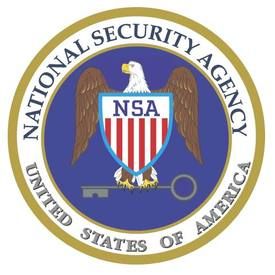
There are actually times when Democrats and Republicans in Congress set aside their partisanship and work together. One is naming post offices and the other allowing the government to subvert our 4th Amendment right against unreasonable search and seizure. In defending the NSA collecting phone numbers telecom members used, Congress members couldn’t give any specific examples that such intelligence collection actually stopped any specific attack and just said not to worry about it. When Congress tells us not to worry then we should worry especially when our civil rights are involved.
Senior administration officials defended the programs as critical tools and said the intelligence they yield is among the most valuable data the U.S. collects. Clapper said the Internet program, known as PRISM, can’t be used to intentionally target any Americans or anyone in the U.S, and that data accidentally collected about Americans is kept to a minimum.
Leaders of Congress’ intelligence panels dismissed the furor over what they said was standard three-month renewal to a program that’s operated for seven years. Committee leaders also said the program recently helped thwart what would have been a significant domestic terrorist attack.
The NSA must collect the phone data in broad swaths, Clapper said, because collecting it narrowly would make it harder to identify terrorism-related communications.
The surveillance powers are granted under the post-9/11 Patriot Act, which was renewed in 2006 and again in 2011. Republicans who usually don’t miss a chance to criticize the administration offered full support.
“I’m a Verizon customer. I could care less if they’re looking at my phone records. … If you’re not getting a call from a terrorist organization, you got nothing to worry about,” said Sen. Lindsey Graham, R-S.C.
Yes that is a “great” come back Senator Graham – you shouldn’t be concerned if you aren’t doing anything wrong. From the same guy who was OUTRAGED by the IRS doing their job…
Supposedly, in this country we are innocent until proved guilty. The government should have to show probable cause to collect our information – not to go on a fishing trip.
And don’t think this only happened just on Verizon:
PRISM information, according to the Post, accounts for nearly 1 in 7 intelligence reports. That’s staggering.
…that gives the NSA unprecedented access to the servers of major tech companies…Microsoft. Yahoo. Google. Facebook. PalTalk. AOL. Skype. YouTube. Apple. If you’ve interacted with any of those companies in the last six years, that information is vulnerable under PRISM. But how?
The initial reports from last night suggested that the process works as follows: The companies mentioned above (and who knows how many others) receive a directive from the attorney general and the director of national intelligence. They hand over access to their servers—and the tremendous wealth of data and communiques that passes through them every day—to the FBI’s Data Intercept Technology Unit, which in turn relays it to the NSA.
And that’s when things get interesting.
…so that the agency can spy on unwitting US citizens…It seems impossible that the NSA, an agency which by law is only allowed to monitor foreign communications, has so much access to domestic information. And yet!
There are, as you might expect, filters in place to help handle the fire hose of data that comes through daily, the trillions of bits and bytes that make up our online identities and lives. Something to ensure that only the bad guys are being tracked and not honest, everyday citizens. Actually, there’s one filter, and it’s ridiculous: an NSA analyst has to have “51 percent” confidence that a subject is “foreign.” After that, it’s carte blanche.
That’s it. That’s the only filter. And it’s an ineffective one, at that; the PowerPoint slides published by the post acknowledge that domestic citizens get caught in the web, but that it’s “nothing to worry about.”
We should all be concerned when a government is too secretive especially when our civil rights are involved. The government has gone too far before in the name of “security”.
I think many of us would feel better if they offered up specific examples where such collection actually led to disrupting terrorism. I have my doubts that this is more than a lazy fishing expedition.

